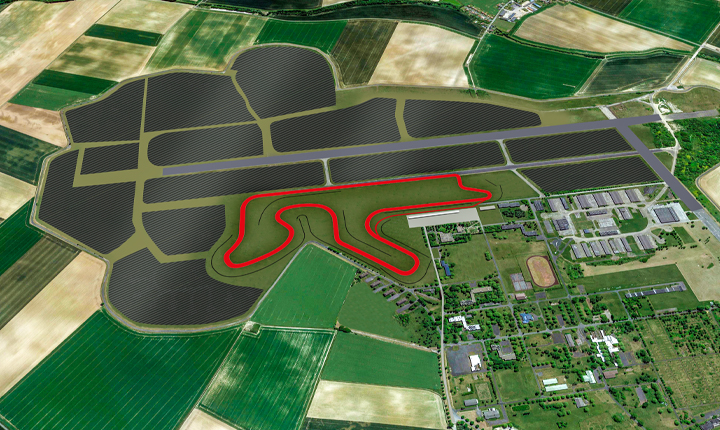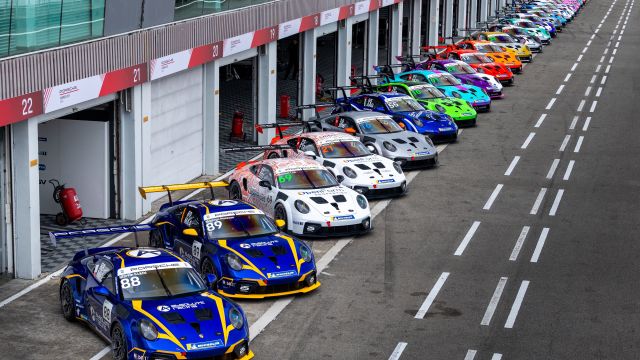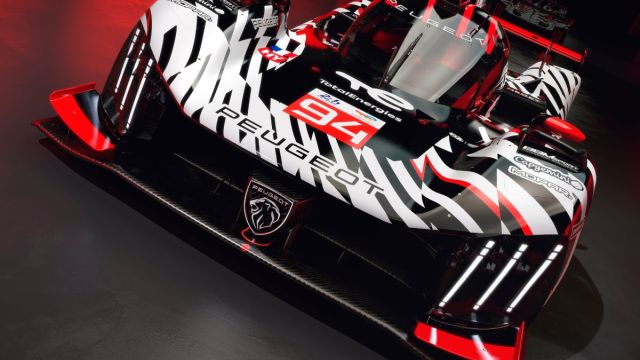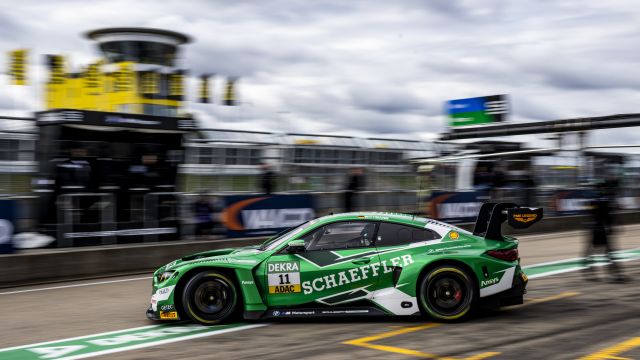MSV unveils plans for Couvron Eco circuit
The UK's leading circuit owner bought the 520-hectare former airfield near Couvron-et-Aumencourt in 2015 and all permits for the circuit and associated infrastructure approvals were obtained by February 2019. Since the initial plans were published, however, both the global economy and automotive industry have changed rapidly, and the recent COVID pandemic offered MSV a period to review the project in 2020 and 2021.
Having contemplated rising costs and the shift by major manufacturers from petrol and diesel cars to hybrid technology and battery electric vehicles (BEVs), MSV has identified an opportunity for Couvron to establish itself at the forefront of motorsport and the automotive industry's push towards a greener future.
Amongst the key changes being explored is a heavily revised circuit design, which will be reduced from 8km across 220 hectares of land to 3.5km over 40 hectares. The previously proposed track would have been one of the fastest and longest in Europe, designed to showcase the prowess of high-performance cars, many of which rely on powerful petrol engines now due to be phased out in 2035. The new layout will be just as challenging to drive, but the shorter route will be far better suited to BEVs.
Use of the redesigned circuit will be much the same as previously announced, with six race events per year in addition to other automotive activities. This will include major manufacturer testing and development, promotional events and launches plus other bespoke corporate functions. There will also be a fresh emphasis on circuit-based activities for BEVs.
Energy for battery electric vehicle use will come from a major on-site photovoltaic (PV) park generating renewable power from solar energy. Approximately 300 hectares of land will be allocated for PV energy production, through which an estimated 350 MWp of electricity would be produced. This particular part of the project, will form one of Europe's largest PV green energy parks.
MSV has been carefully evaluating a number of PV companies ahead of construction, which is expected within the next three years. Environmentally sensitive installation with extensive landscaping is planned throughout this, with a planned operation start date within four years.
Petrol and diesel engine cars and motorcycles will also use the circuit initially, whilst they continue to form a key part of the commercial and motorsport landscape.
The new vision for the venue also includes reduced noise emissions compared with the previous circuit activity plan. And there will be a significant reduction in noise impact, with the new circuit configuration now set to lie more than twice as far from the nearest village, Vivaise, than previously announced.
It has always been MSV's intention to supplement the circuit business with other uses of the site aimed at generating employment opportunities. This is planned to include industrial use of new and existing buildings, with scope to develop towards the north-west of the site, with an aim to attracting businesses that share the Couvron eco circuit's concept of promoting sustainability. This could include vehicle refurbishment and recycling, electric motorsport vehicle development and manufacturer and logistics and distribution. These complementary developments could also benefit from access to green power.
A small runway will be retained, mainly for private use, including for electric plane operation. The proposed runway will be 1200m long and 23m wide with electric charging points to be installed using electricity generated on-site.
MotorSport Vision Chief Executive, Jonathan Palmer, said:"MSV has a great opportunity at Couvron to pioneer the ability for people to enjoy carbon zero motorsport by using battery electric vehicles charged from green electricity from a vast on-site solar park, which is really exciting. We are fully committed to embracing a future low carbon world where we can. We recognise however that motorsport, which represents a miniscule fraction of the use of conventional fuels as compared to road transport, can only evolve in any significant way from using fossil fuels when affordable technology allows it to do so viably."






Comments
Log in to comment the article